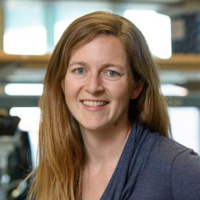Erin Mordecai (Stanford University, Biology)
ZoomNonlinear impacts of climate change on dengue transmission Dengue is a re-emerging mosquito-borne disease that infects hundreds of millions each year—a burden that is expected to increase with climate change. However, the precise relationship between dengue transmission and changing temperature is nuanced: previous research has shown that warmer temperatures can increase, decrease, or not affect


